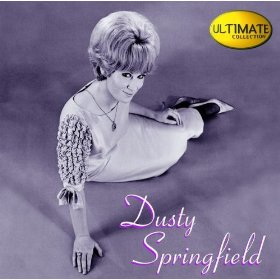Baby, I can’t please you
I’m not sure the exchange Eric remarks on in this recent post (following up on this, a few comments appended to it by “Moneyrunner” and me, and this at Moneyrunner’s blog) is interesting, but it’s certainly symptomatic of something. Moneyrunner says in part:
What I find most off-putting when I read a lot of Libertarians is their disdain of Christianity or traditional morality. They seem to find a need to put lots of distance between themselves and the 70+% of the American people that go to church and believe in God. Libertarians want cafeteria style morality: small government, low spending, low taxing, free to flout convention but no social constraints even of an informal nature like social ostracism.
I think there are two points here, one of which I addressed briefly (for me) in Eric’s comments. That one is that the libertarians I know of, pretty much to a person, believe that there are a lot of values that should be enforced by social convention—who, indeed, believe that enforcement by social convention is preferable to enforcement by state power. I think it’s possible to argue that they’re actually too trusting in social convention when it comes to things like drug use. There is a species of anarchist libertarian, and it would be a lie to say that there isn’t, but in my experience most libertarians have no problems with community standards, as long as there’s room for lots of communities people can jump between in search of others who are like-minded.
The major libertarian vice is not libertinism but a head-up-one’s-own-ass obsession with ideological purity. Too many libertarians want to pretend that you don’t have to compromise in order to participate in practical politics. Eavesdrop on a group of libertarians, and you may find yourself privy to a conversation that goes something like this:
“But if we have agreed that it ought to be permissible to sell hand grenades through street-corner vending machines—”
“Produced by private manufacturers.”
“OBVIOUSLY! Anyway, yes, so, now suppose economies of scale made it possible to mass-produce suitcase nukes. Should they be available to private citizens for self-defense purposes?”
“From the same vending machines as the grenades? I don’t know that you could really make them fit. I mean, even though we call them ‘suitcase’ nukes, they’re really kind of—”
“I’M NOT TALKING ABOUT HOW BIG THEY ARE. UNFETTERED BY STATIST, COMPETITION-SUPPRESSING ZONING RESTRICTIONS, WE COULD HAVE A KIOSK THAT TAKES UP HALF A BLOCK INSTEAD OF A VENDING MACHINE. Should ordinary citizens be able to buy nukes?”
“Hmm. And what about registration? We’d have to think about the possibility that someone would propose a nuke registration system.”
“Again with the registration systems? WE CAN THINK ABOUT THAT LATER—WE HAVE TO ESTABLISH A CONSISTENT FRAMEWORK FIRST.”
This is the sort of discussion that usually starts, with the best of intentions, about real-life threats to (in this hypothetical case) real people’s Second Amendment rights. It gets derailed because someone in the room is able to guilt-trip everyone else into thinking that taking a position on the problem at hand is illegitimate unless a principle that would cover every last conceivable, Dad-blamed related issue for all time is developed this very minute. So when Moneyrunner equates libertarianism with “cafeteria morality,” my gut reaction is something along the lines of, Hahahahahahahaha…oh, sweetie, if you only knew!
The second point is related to the “lots of distance between themselves and the 70+% of the American people that go to church and believe in God” part. This makes it sound as if Eric had been freaking out that being lumped in with those nasty Christians would ruin his libertarian street cred or something, which I don’t think was what he was driving at. His point, as I understood it, was that as the popular understanding of what “conservative” means changes, it’s hard to keep up with what beliefs are being attributed to you when you’re tagged with it. Then people get on your case about “inconsistencies” with beliefs you never subscribed to in the first place. Perhaps he could have been less “snarky” about it, but neither the sardonic tone nor the thrust of the argument seems anti-Christian to me. Looking for reasons to tar all libertarians as crazed anything-goes crèche-smashers is no more helpful to the public debate than looking for reasons to tar all Christians as theocrats.
Added later: One last thing: Moneyrunner implies that Glenn Reynolds at Instapundit is somehow more respectful of conservatives than Eric is. Really? I just don’t see it. Eric takes up the subject of political labeling much more frequently than Reynolds does, so you can probably find a greater number of criticisms of conservatives at Classical Values than at Instapundit. I’m not sure there’s more snark per unit of posting, though.
